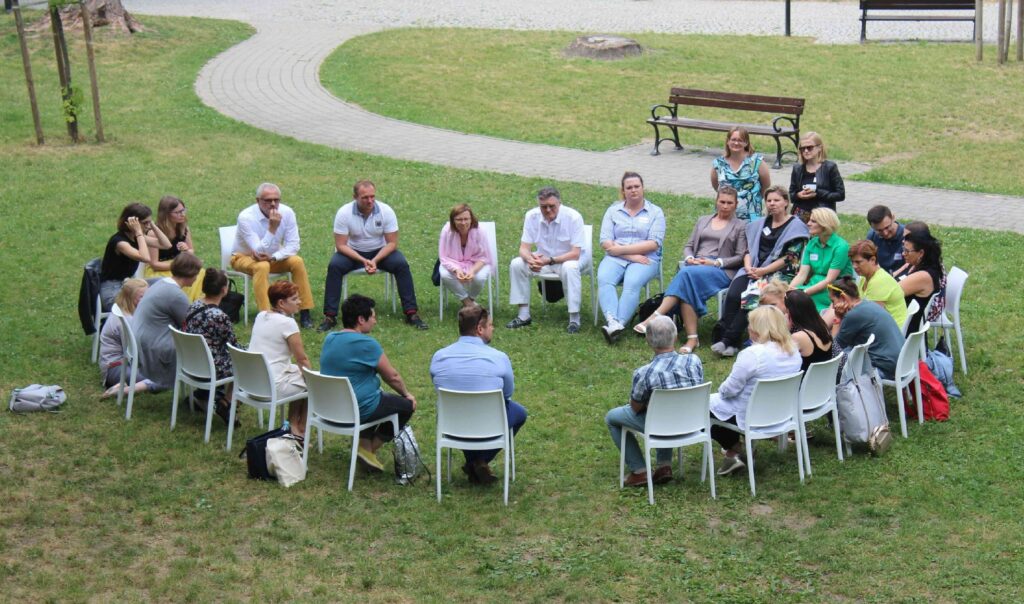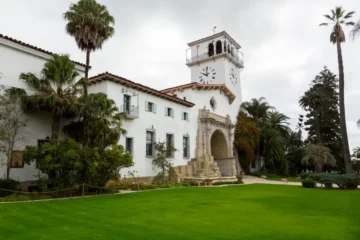
Montecito Country Club Easement Dispute is the kind of place people dream about—gorgeous ocean views, peaceful streets, and that quiet, understated charm. But lately, the calm’s been shaken. And no, it’s not the waves or a new celebrity moving in—it’s a legal mess that’s got neighbors talking: the Montecito Country Club Easement Dispute.
What seemed like minor landscaping work at first has snowballed into something much bigger. For homeowners, this isn’t just about where a path ends or a hedge begins—it hits home. It’s about guarding their privacy, protecting the peace they came here for, and standing up for a place that means more than just property—it’s where their lives are rooted.
What’s the Dispute Really About?
At the center of the conflict is land—more specifically, how easements are being used around the Montecito Country Club. Easements allow someone to use land they don’t own, usually for access. In this case:
- The Country Club has allegedly expanded its use of easement areas beyond original agreements.
- Residents claim this has brought more noise, unexpected traffic, and less privacy.
- Homeowners worry this overreach is starting to impact their property values and quality of life.
“We didn’t buy into this community to have golf carts driving past our living rooms.”
— Montecito homeowner
“To understand the full scope of the problem, it’s helpful to review how easement laws in California define property access and limitations
What’s Fueling the Frustration?
Pushing the Boundaries
Homeowners report that club crews have widened access paths, cleared greenery, and even trimmed trees—sometimes right behind their homes.
“Our hedge was more than just pretty landscaping—it was our privacy,” said one longtime resident.
More Guests, More Traffic
What used to be a quiet lane is now seeing club guests and maintenance vehicles regularly. Parents are especially uneasy, saying the paths are no longer safe for children or pets.
Left in the Dark
Perhaps most frustrating of all is the lack of communication. Homeowners say getting clear answers—or even basic documentation—has felt like pulling teeth.
When a Dispute Hits Home—Literally
This fight isn’t happening in courtrooms far away. It’s happening in people’s backyards—quite literally.
- Stress is rising. Neighbors say the joy of living in Montecito is being chipped away.
- Some fear declining home values, especially those who were planning to sell.
- And there’s tension within the community. Some neighbors want to keep the peace; others want to push back hard.
“We used to meet up for wine and talk about travel. Now it’s all legal updates and easement maps.”
— Quote from a recent HOA meeting attendee
Know Your Property Rights
If you live in Montecito—or are considering buying here—understanding your rights is essential.
Your Basic Rights
- To quiet enjoyment of your property
- To challenge easement misuse legally
- To maintain your landscaping and boundaries unless otherwise agreed
When to Get Legal Help
If you’re noticing:
- Unexpected construction or traffic near your property
- Loss of privacy or access
- Confusing or missing documents
…it’s time to speak with a property attorney, preferably one familiar with California easement law.
How Homeowners Are Standing Their Ground

This issue has lit a fire in the neighborhood, and many are responding with calm determination—not chaos.
Strength in Numbers
Homeowners have formed committees and are pooling resources to consult legal and land-use experts.
Meetings That Matter
HOA and town hall meetings are no longer just social—they’re strategy sessions.
Staying Civil, But Strong
Most residents aren’t rushing to sue. Instead, they’re pursuing mediation, hoping to reach common ground without courtroom drama.
What’s the Country Club Saying?
The Montecito Country Club has made a few public statements:
- They say the work is “aimed at improving infrastructure.”
- They insist it’s within the scope of their legal easement rights.
- They’ve expressed “openness to dialogue.”
But many homeowners feel those words ring hollow. Without action or adjustment, trust is eroding.
“According to Montecito Country Club’s recent projects, the goal is to modernize amenities and infrastructure—though local residents argue those improvements are coming at a cost.”
Why This Dispute Matters Beyond Montecito
This isn’t just a neighborhood squabble—it could set a precedent:
- Buyers are watching. If the dispute drags on, it could affect interest in local real estate.
- Communities could divide. Disagreements among neighbors are already surfacing.
- Other HOAs and clubs may take notes. What happens here could ripple out across other California communities.
If You’re Facing a Similar Situation…
You don’t need to live in Montecito to learn from this.
Here’s how to protect your peace and property if something similar unfolds near you:
- Pull your paperwork. Find easement terms in your deed or title report.
- Document issues early. Photos, traffic logs, and written complaints are helpful.
- Get to know your neighbors. United voices are louder and harder to ignore.
- Speak up early. Mediation works better than litigation—if started soon.
- Keep cool under pressure. Emotion is understandable, but facts win fights.
Final Thoughts: A Dispute That Goes Beyond Land
This isn’t just about who can use a path or trim a tree. The Montecito Country Club Easement Dispute is about identity—about what kind of place Montecito is, and who gets to shape that future.
For now, one thing is clear: the more informed, connected, and active the residents are, the better chance they have of preserving the values that brought them here in the first place.
“Want a clearer picture of how easements affect your property? Check out our full guide on Understanding Easements in Montecito for practical tips and real homeowner examples.”
FAQs
Q1: Can homeowners block the easement entirely?
A: Not without cause. If the Country Club has legal access, only proven misuse can challenge that right.
Q2: How do I find out if my property has an easement?
A: Start with your title report or check with your local county recorder’s office.
Q3: Are these kinds of disputes common?
A: Increasingly, yes—especially in high-value areas where land and access are hot commodities.



